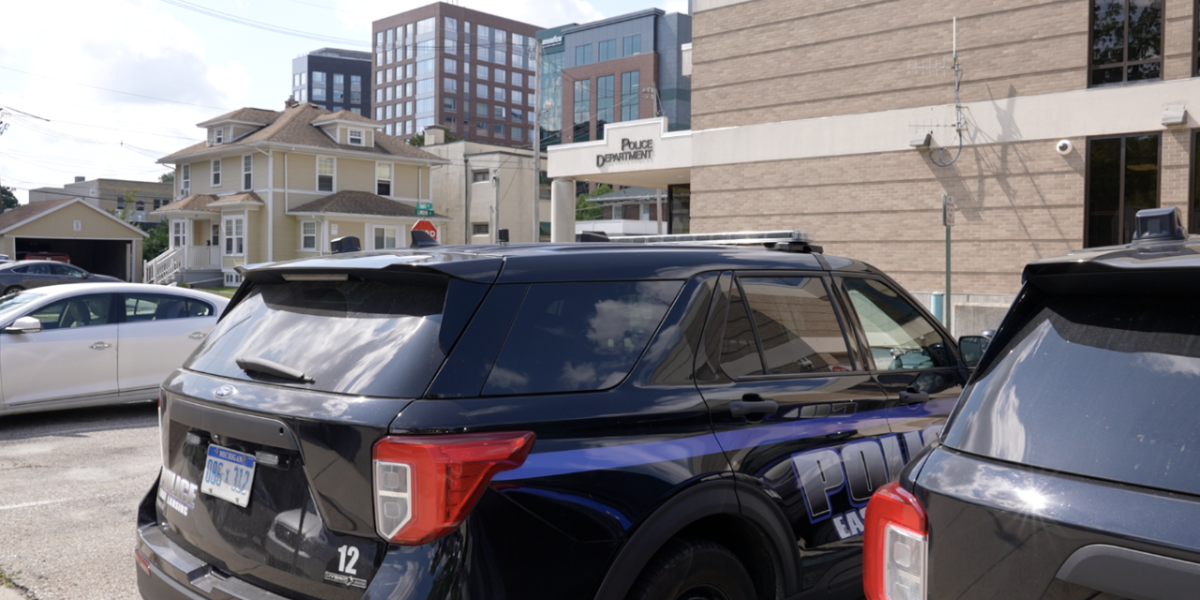Late last month, city Correction Department officials asked the jail oversight board to expand bed capacity in certain Rikers Island dorms from 50 to 60 beds.
The so-called variance request — initially approved in February — was needed to deal with overcrowding as the jail population swelled to 7,645, Correction Department Commissioner Lynelle Maginley-Liddie wrote on June 28 to the Board of Correction, which sets rules for city jails.
The overcrowding is due in part to a logjam caused by a state prison strike by correction officers earlier this year,
“Let me be clear: the request is not made in jest,” DOC’s Senior Deputy Commissioner Fritz Fragé testified before the board Tuesday. “It’s made because there is no other option. If we don’t get the variance, we will have 130 people without beds.”DOC Senior Deputy Commissioner Fritz Fragé testifies at a Board of Correction meeting in Lower Manhattan, July 8, 2025. Credit: Alex Krales/THE CITY
The Board failed to muster enough support for the measure, voting 4-1 in favor of granting the request with one abstention.
But five board members are needed to pass the resolution.
City officials didn’t immediately respond to requests for comment on what the department intends to do without the variance. Previously, Mayor Eric Adams has signed emergency executive orders to override votes taken by the board.
Commissioner Maginley-Liddie did not attend the meeting.
But hours after the vote her top spokesperson slammed the move.
“It is unfortunate that the Board fails to grasp the severity of the crisis faced by our jails due to the issues impacting the State system,” said DOC spokesperson Patrick Gallahue. “This Department has a duty to make decisions in the best interest of the safety of everyone living and working in our facilities and we will do so accordingly.”
The battle over expanding housing units on Rikers comes two months after Laura Taylor Swain, the chief district judge for Manhattan federal court, ruled that she will soon appoint an independent “remediation manager” to enact stalled reforms. She has asked both sides — city officials and the Legal Aid Society — to submit potential candidates for the role by August.
At the hearing, board member Dr. Robert Cohen, a staunch critic of the correction department, announced that he was leaving after 16 years.
He led the charge against granting the department permission to expand bed capacity, arguing that the city DOC and state authorities do not have any long term plan to reduce the population.
“Fundamentally, jails are bad places,” he said. “We should not make them bigger and bigger and bigger.”
The vote comes as a new heat wave has left many detainees housed in areas with little or no air conditioning. The prior heat wave last month forced the department to cancel some programming and caused some detainees to become sick, according to multiple advocates.
“The facilities are old and dilapidated and don’t have the infrastructure capacity to both keep incarcerated people and officers safe — and manage in times of extreme heat,” Fortune Society CEO Stanley Richards told THE CITY last month.
When he served as the DOC deputy commissioner during the end of the de Blasio administration he recalled the use of massive industrial fans “blowing extremely hot air that wasn’t doing anybody any good.”
Officers walked around with drenched shirts and detainees housed without adequate ventilation.
“It was just a disaster,” he said. “It breeds frustration and anger. People have short tempers.”
At the board hearing, multiple people noted that two detainees — Benjamin Kelly and James Maldonado — died on Rikers less than 90 minutes apart on June 21. They were the sixth and seventh fatalities at the troubled lockup by the East River this year so far.
Cohen began the meeting by announcing his resignation and urged Judge Swain to appoint a remediation manager to revamp Rikers.
“Time is clearly of the essence,” he said. “Fourty deaths in the Adams administration is 40 deaths too many.”
“The city and state should release prisoners,” Cohen added.
He noted his appointment to the board was driven by a coalition of advocates who pushed former City Council Speaker Christine Quinn to name him when a spot opened up. More recently, he noted former Commissioner Louis Molina blocked the board from video surveillance access. The board sued to get that access back.
The Adams administration has also blocked the board’s new rules to strictly limit the use of solitary confinement, Cohen pointed out.
“Finally, Rikers Island is a hellhole,” he said. “I’ve been working here for 40 years.”
Cohen added: “It’s a firetrap, its locks don’t lock, and it’s dangerous to all those who work and live there.”
Our nonprofit newsroom relies on donations from readers to sustain our local reporting and keep it free for all New Yorkers.




